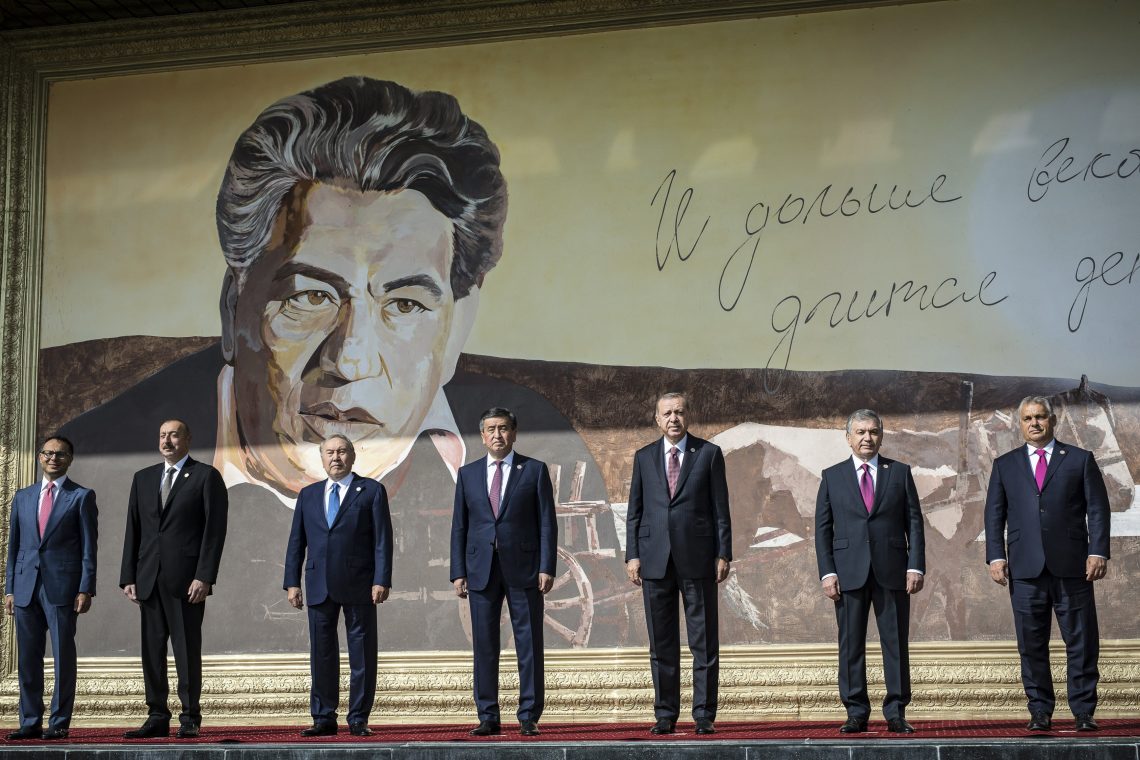
Hungarian Prime Minister Viktor Orbán at the 2018 Turkic Council in Cholpon Ata (Source: merce.hu)
“We will not become colonies” – so goes the official statement of Hungarian Prime Minister Viktor Orbán, who has since 2010 been labeling his government an “illiberal democracy” or recently “Christian democracy”, whilst revitalizing anti-Western nationalist victimization against both postsocialist neoliberalization and the European Union, and drawing up civilizational-racial demarcation against the global periphery. The political analyses of Orbán’s authoritarian turn have dominantly focused on identifying this “new type” of authoritarianism: whether and to what extent it is democratic, what political typology it fits into (e.g. “hybrid regimes” or “semi-authoritarian regimes”), or how is it embedded in a global rightwing turn or a new neoliberal or neoconservative authoritarianism. However, these institutionalist approaches are geographically unreflective and inherently conceptualize from the lack of democracy and Western values, thereby reproducing East-West dichotomies and local self-colonization, failing to understand the local historical epistemologies and experiences Orbán’s political regionalism (“classical” Europe, Central Europe, Eurasia) and colonial discourse is based upon. The seemingly “irreconcilable” and “antagonistic” positions of this political discourse have specific functions connected to the new geographical alliances and scalar politics of Hungarian semiperipheral world-systemic integration. This paper analyses Hungarian political discourse from a postcolonial and world-systemic perspective to understand the semiperipheral geographical positioning of the country in-between the global center and periphery.